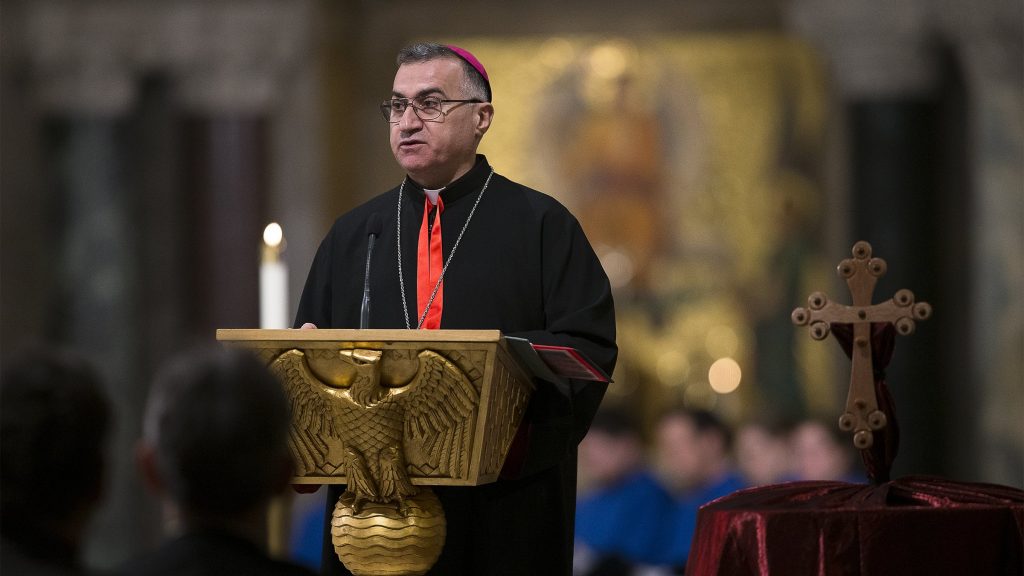Iraqi Archbishop Bashar Warda has said that Pope Francis’ upcoming visit to the country could be a turning point for the country’s diminished Christian population, who face ongoing challenges amid Iraq’s unfolding economic crisis.
In an interview with CNA, the Chaldean Catholic Archbishop of Erbil said that Pope Francis’ March 5-8 apostolic trip would be “historic.” It will be the first papal trip to Iraq, a country where Christianity dates back to the first century.
“It has the potential to change the trajectory of the Christian presence in Iraq from one of a disappearing people to one of a surviving and thriving people,” Warda said.
Since the Islamic State occupied parts of northern Iraq in 2014, the number of Christians living in the formerly occupied areas has declined from 102,000 to 36,000.
Some displaced Christians have returned to the Nineveh Plains, in northern Iraq, as their homes were rebuilt, but more Christian families left the region than returned to their hometowns last year, according to a report by Aid to the Church in Need.
Economic instability and continued security challenges have been the forces driving this continued emigration.
Iraqis have been protesting against government corruption and the lack of economic opportunities since October 2019. The coronavirus pandemic and collapse of oil prices in 2020 have further weakened Iraq’s economy.
There are concerns that Iraq’s financial problems have grown so severe that the government could face problems paying salaries in January. This is particularly worrying because the government is the country’s largest employer.
“For the present, what we need most is economic opportunity for the people, some path to dignified livelihoods,” Warda said.
“This is what we hope the international community can most understand at this time.”
Upon Pope Francis’ arrival in Baghdad in March, he will likely address Iraq’s government leaders. Archbishop Warda told CNA that he was confident that the pope would speak to these economic issues out of his concern for the poor.
“The Holy Father has always made it clear that he and the Church are first with the poor and the marginalized, with the working families, and the importance of their ability to live in peace and dignity,” he said.
“In this, he has likewise been clear that it is the fundamental responsibility of governments to serve the people and that to do otherwise is a sin against God and man. I have no doubt that this is the message he will bring to Iraq.”
Pope Francis has repeatedly expressed his desire to visit Iraq in recent years to be close to the severely persecuted Christian communities, but security concerns have prevented him from fulfilling his desire.
Archbishop Warda said that the security situation in Iraq “continues to evolve, in some respects positively, in others less so.”
“At present, we are in a period where the security for a visit by the Holy Father is feasible,” he said.
One security concern for the local Christian population is the presence of Iran-backed militias in the region.
“Concerning the continuing presence of any militias in Iraq, the Church here has been consistently against their existence as an obstacle to lasting peace in the country,” Warda said.
During his four-day trip to Iraq, the pope is scheduled to visit Baghdad and the plain of Ur, as well as Mosul, Erbil, and Qaraqosh in northern Iraq.
Archbishop Warda said he was hopeful that the pope’s visit would strengthen the enduring solidarity between the Vatican and Christians in the Middle East.
“We hope that his Holiness will see and feel the deep faith of the Christian witness here in the people that have remained and stayed true in the face of real persecution and suffering for so many years,” he said.
“This sense of solidarity, of not being forgotten, has great meaning to the Christian population here.”
